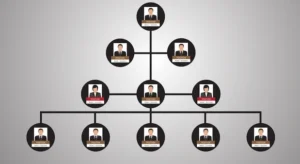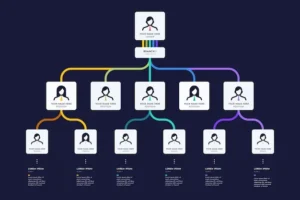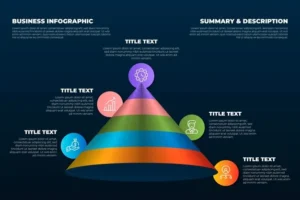Introduction
The phongsavanh group pyramid scheme, a prominent business conglomerate in Laos, has built a reputation across various industries, including banking, logistics, construction, and telecommunications. Its contributions to economic development in Laos have been significant, making it one of the most recognized names in the region. However, allegations labeling the Phongsavanh Group as a pyramid scheme have emerged, sparking heated debates, confusion, and significant scrutiny from both local and international observers. This article delves into the claims, the nature of pyramid schemes, and whether the Phongsavanh Group’s practices align with such accusations.
Understanding Pyramid Schemes
Before delving into the specifics of the allegations against the Phongsavanh Group, it’s crucial to understand what constitutes a pyramid scheme. A pyramid scheme is a business model that recruits members through a promise of payments or services for enrolling others into the scheme, rather than supplying legitimate products or services. Characteristics of pyramid schemes include:
- Recruitment-Based Revenue: Revenue is generated predominantly through recruitment rather than actual sales of products or services.
- Unsustainable Structure: These schemes collapse once recruitment slows down because there are no other revenue streams to sustain payouts.
- Lack of Tangible Value: Products, if offered, are often overpriced or have little to no market value, serving as a facade for the scheme’s recruitment model.
Governments worldwide have made efforts to distinguish pyramid schemes from legitimate multi-level marketing (MLM) businesses by emphasizing the importance of product-based sales over recruitment-driven revenue.

Phongsavanh Group’s Business Portfolio
The Phongsavanh Group was founded in 1977 and has since diversified into several key sectors:
- Banking and Finance: Phongsavanh Bank, Laos’ first private bank, provides financial services and is a cornerstone of the group’s operations.
- Logistics and Transport: It operates a network of logistics and shipping services to facilitate trade within Laos and internationally.
- Telecommunications: Investments in telecommunications infrastructure have contributed to digital transformation in Laos.
- Retail and Consumer Goods: Through various subsidiaries, the group markets consumer products that cater to local needs.
This diversified portfolio positions the phongsavanh group pyramid scheme as a significant player in Laos’ economic landscape. However, critics suggest that some of its business practices resemble those of pyramid schemes, casting doubt on its legitimacy.
The Pyramid Scheme Allegations
Basis of the Claims
Allegations linking the phongsavanh group pyramid scheme to pyramid scheme practices primarily focus on three areas:
- Recruitment Incentives: Critics allege that certain subsidiaries within the group prioritize recruiting participants over promoting legitimate products or services.
- Lack of Transparency: There have been claims of opaque financial practices, making it difficult for investors and stakeholders to understand the true sources of the group’s revenue.
- Exaggerated Profit Promises: Reports suggest that individuals were lured with promises of high returns, which is a hallmark of pyramid schemes.
Evidence Presented
Though no formal legal action has been taken against the phongsavanh group pyramid scheme on these grounds, whistleblowers and former associates have come forward with anecdotal evidence:
- Testimonials: Individuals who invested in some of the group’s ventures claim they were incentivized to recruit others rather than focus on selling products.
- Market Analysis: Some analysts argue that certain products offered by the group are overpriced, suggesting their primary purpose might be to mask recruitment-based revenue generation.

Counterarguments from the Phongsavanh Group
The phongsavanh group pyramid scheme has vehemently denied these allegations, emphasizing its long-standing reputation and contribution to Laos’ economy. Key points in its defense include:
- Legitimate Business Operations: The group highlights its diverse portfolio, which includes regulated banking and telecommunications services, as evidence of its legitimacy.
- Regulatory Compliance: It asserts adherence to Lao laws and international standards, particularly in its banking and finance operations.
- Job Creation and Economic Impact: By creating thousands of jobs and facilitating economic growth, the group argues that its activities are far removed from the exploitative nature of pyramid schemes.
Legal and Regulatory Framework in Laos
To assess the validity of these allegations, it’s essential to consider Laos’ legal framework regarding pyramid schemes. The country has made strides in regulating such activities, with laws that:
- Prohibit Recruitment-Based Schemes: Laws explicitly ban business models where income is primarily derived from recruiting new participants.
- Mandate Transparency: Companies are required to disclose financial records and revenue streams to regulators.
- Protect Consumers: Regulations are in place to ensure that products sold by MLM companies have genuine value.
Despite these measures, enforcement remains a challenge due to limited resources and expertise, which may explain why the allegations against the Phongsavanh Group have not led to formal investigations.
How to Distinguish Legitimate Businesses from Pyramid Schemes
For businesses operating in similar sectors as the phongsavanh group pyramid scheme, distinguishing legitimate operations from pyramid schemes is crucial. Key indicators of a legitimate business include:
- Product-Centric Revenue: Legitimate companies earn most of their revenue from selling genuine products or services, not recruitment.
- Transparent Operations: Financial and operational transparency fosters trust and compliance.
- Sustainable Growth: Growth is driven by market demand and consumer satisfaction, not continuous recruitment.
Public Perception and Media Coverage
The allegations against the phongsavanh group pyramid scheme have generated mixed reactions. While some view the claims as baseless attacks on a successful enterprise, others believe they warrant deeper investigation. Media coverage has been polarized, with some outlets highlighting the group’s contributions to Laos’ economy and others raising questions about its business practices.

The Global Context: Pyramid Schemes in Emerging Markets
The allegations against the phongsavanh group pyramid scheme must be viewed within the broader context of pyramid schemes in emerging markets. Factors contributing to the prevalence of such schemes include:
- Economic Vulnerability: In countries with limited job opportunities, pyramid schemes often thrive by exploiting people’s desire for quick wealth.
- Regulatory Gaps: Weak enforcement mechanisms allow fraudulent schemes to operate with impunity.
- Digital Platforms: The rise of social media and digital marketing has made it easier for schemes to spread rapidly.
Conclusion
The allegations of pyramid scheme practices against the phongsavanh group pyramid scheme highlight the importance of transparency and adherence to ethical business practices in maintaining trust. While the group has denied these claims and continues to operate across diverse industries, the controversy underscores the need for robust regulatory frameworks and vigilance to protect consumers and investors.
As the situation evolves, stakeholders—including the Lao government, regulators, and the public—must ensure that businesses like the Phongsavanh Group are held accountable while fostering an environment that encourages legitimate economic growth. For now, the allegations remain unproven, but they serve as a critical reminder of the thin line between ambitious business models and exploitative schemes.
SeeMore: SEO Brain Strom
